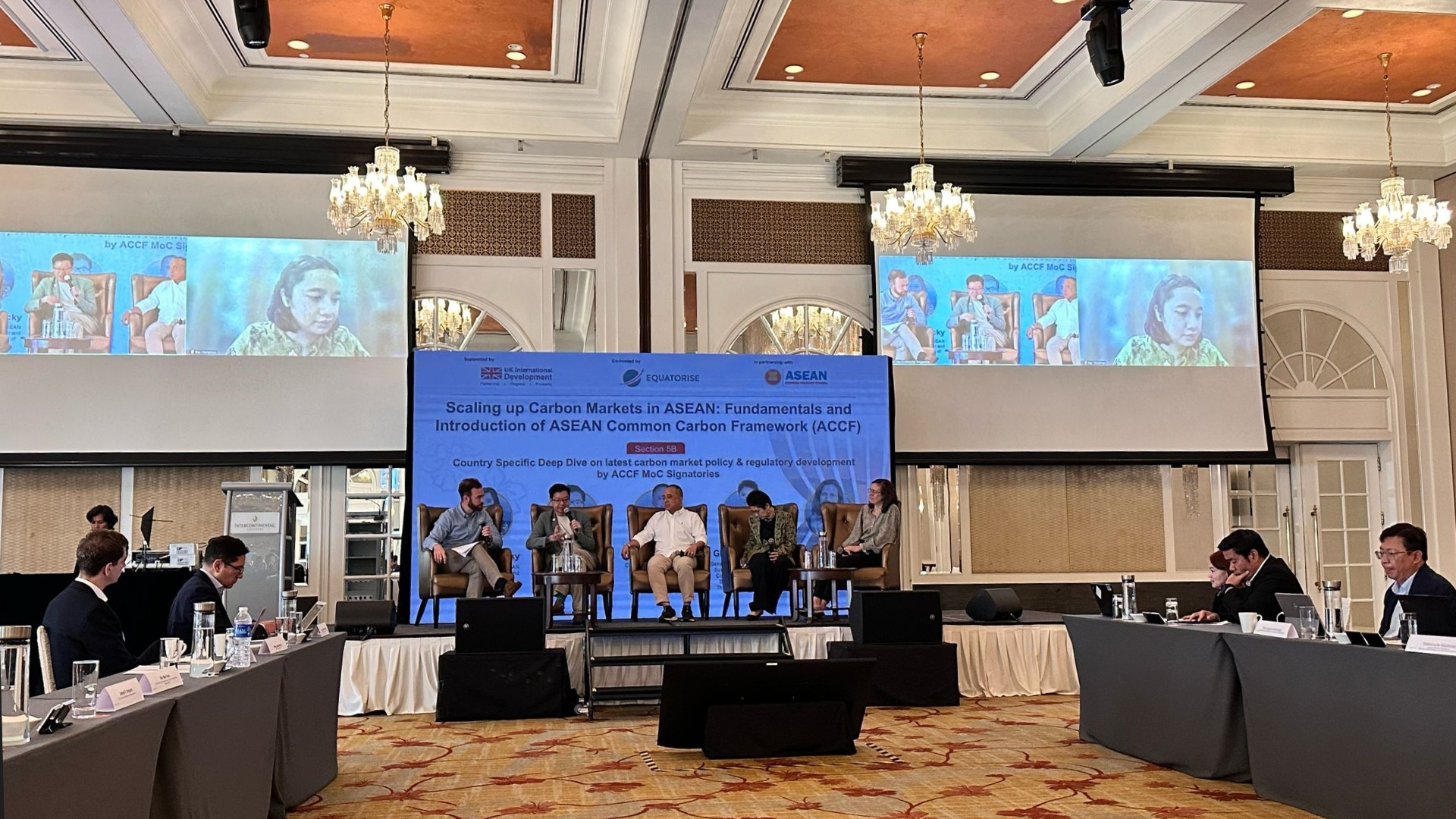Scaling Up Carbon Markets: ASEAN’s Big Moves Toward Regional Cooperation
News

The global carbon market is undergoing a period of significant transformation, as highlighted in BloombergNEF's (BNEF) Global Carbon Market Outlook 2024. The sector is expected to grow rapidly, with carbon credit prices potentially exceeding $200 per ton, driving a market valued at over $1.1 trillion annually by 2050. In this evolving landscape, Southeast Asia presents immense opportunities, particularly in nature-based solutions (NbS), which could generate $2.7 trillion in economic benefits and create 180 million jobs by 2030, according to a study by Abatable.
Recognizing this potential, key regional stakeholders convened at the Scaling Up Carbon Markets in ASEAN: Fundamentals & the ASEAN Common Carbon Framework (ACCF) event in Singapore on March 3-4, 2025. This initiative, supported by the ASEAN-UK Green Transition Fund (GTF) and organized by Equatorise Advisory, brought together approximately 75 participants, including ASEAN Member States, Timor-Leste, and private sector representatives.
A key highlight of the event was a session dedicated to advancing the ASEAN Common Carbon Framework (ACCF) following its Memorandum of Collaboration (MoC) signing at COP29 in Baku last year. The discussion brought together key experts to share insights on national carbon market developments and regulatory progress across ASEAN. Natalia Rialucky, Deputy Chair for Intra-ASEAN Affairs of the ASEAN Alliance on Carbon Markets (AACM) and Founder & CEO of Fairatmos, contributed to the Country-Specific Deep Dive on Latest Carbon Market Policy & Regulatory Development panel, alongside distinguished experts such as Dr. Renard Siew (Malaysia Carbon Market Association), Dr. Riza Suarga (Indonesia Carbon Trade Association), and Gloyta Nathalang (Thailand Carbon Market Club).
Natalia provided insights into Indonesia’s progress in carbon market development, outlining milestones such as Presidential Regulation (Perpres) 98/2021 on Carbon Economic Value (NEK) and the launch of Indonesia’s Carbon Exchange (ICX). Dr. Renard Siew discussed Malaysia’s leadership in carbon market integration, highlighting policy instruments like Bursa Malaysia’s Voluntary Carbon Market (VCM) and the National Energy Transition Roadmap (NETR). Meanwhile, Gloyta Nathalang shared Thailand’s advancements, particularly through the Thailand Voluntary Emission Reduction (T-VER) program and private sector engagement in the Thailand Carbon Market Club. Natalia emphasized Indonesia’s role in shaping ASEAN’s regional framework, leveraging its experience in voluntary and compliance carbon markets to drive sustainable economic growth.
With ASEAN progressing toward a harmonized carbon market, the ACCF aims to establish mutually recognized carbon credit standards, fostering credibility, interoperability, and price efficiency across the region. The discussions at the event reinforced ASEAN Member States' commitment to market-based solutions in achieving their Nationally Determined Contributions (NDCs) under the Paris Agreement.
As ASEAN countries move toward greater collaboration, now is the time to unite in achieving carbon neutrality. Whether you are a carbon project developer, investor, technology provider, government body, or carbon standard organization, this is the moment to set aside differences and work together toward a unified regional carbon market. Fairatmos remains at the forefront of these developments, actively engaging in regional dialogues and providing innovative solutions for carbon project development.
Stay updated with the latest insights on ASEAN carbon markets through Fairatmos' news and updates.
Visit our 🌐 website or 📩 contact us to learn more!

